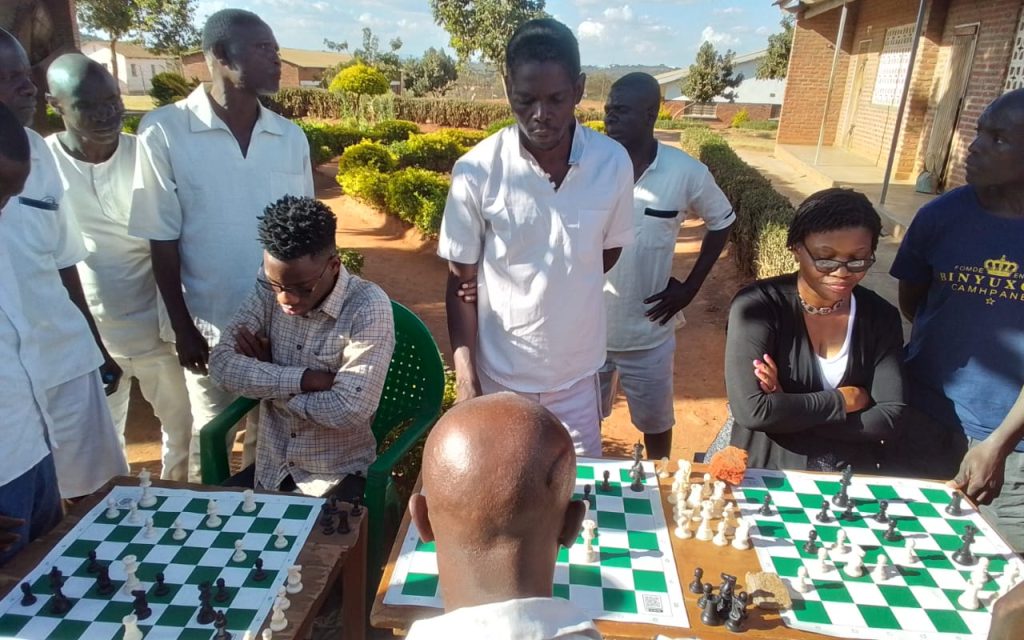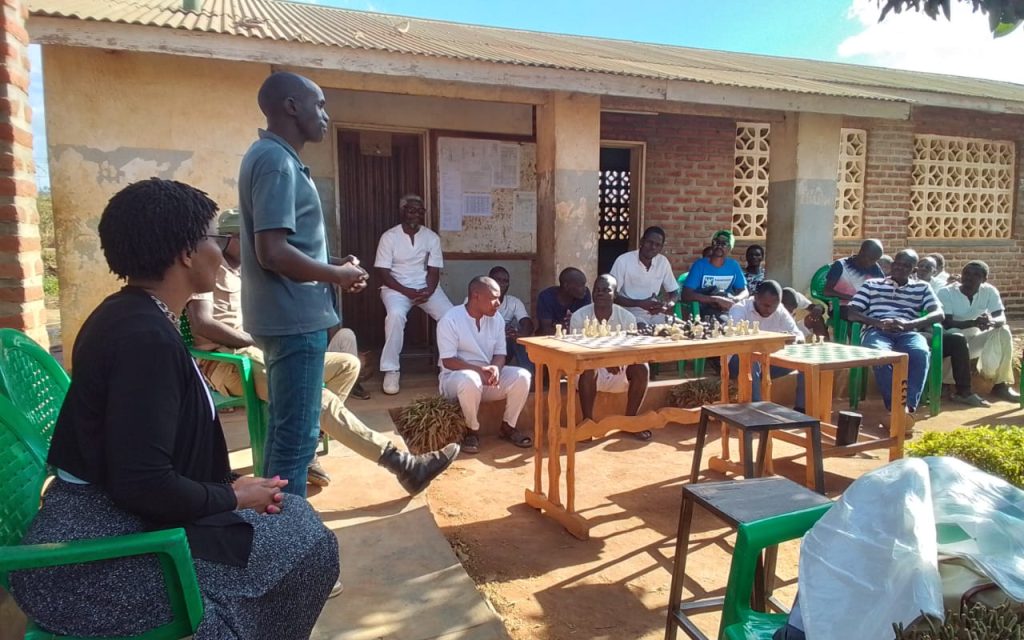Susan Namangale, founder of Dadaz Chess Academy, who is also Global Head of The Gift of Chess, is confident that Maula Prison inmates from Malawi can favorably compete in the online Intercontinental Chess Championship scheduled for this October.
She said this after visiting the Prison on Sunday to provide them with chess sets The Gift of Chess from the consignment of 1,000 which the US charity provided for free in partnership with Dadaz Chess Academy as its country ambassador.
“We had a good time at Maula,” said Namangale, who is Dadaz Chess Academy founder. “The inmates are playing good chess. We want them to be ready for the upcoming Intercontinental Chess Championship in October.”
Namangale is thus lobbing for support for computers from well-wishers for their online trainings, saying: “Some are at advanced stages playing some very good chess. They play monthly tournments within the prison walls.
“They train amongst themselves as some learnt the game earlier and are really good players. They are also trained by some good warden chess players.”

Namangale, who is former Chess Association Malawi (CHESSAM) president, maintains that the Maula Prison inmates are ready for the Intercontinental Championship but emphasized the need to be provided with computers for their online training.
She also said Dadaz Academy has reached out to other penitentiaries such as Zomba Maximum, Chichiri, Byanzi Juvenile Rehabilitation Centre, Bvumbwe Juvenile Centre, Mulanje, Nsanje, Ntchisi, Nkhotakota, Mzuzu, Ntcheu, Mangochi and Kasungu, “who are all are very happy with the program”.
Dadaz Academy launched a chess in prison program at Maula Prison last year and after Namangale attended a Chess for Freedom conference in Chicago, US, she experienced inmates enjoying the game at Cook County Sheriff, that country’s second largest prison.

The visit inspired her to extend it to other penitentiaries after the success of the initiative at Maula, saying the Chess in Prison program is being initiated under Chess for Freedom as “a great tool to improve the quality of life for prisoners as they prepare them for liberation”.
“The chess players I saw in prison were so free mentally and we played some games with them,” she had said. “It was such an amazing experience to see sports programs in prison as a true reflection of sports for all.”
She indicated that inmates participate in international online games and she got inspired that the country’s inmates should also participate in the programs.
Sourse: Maravi Express
